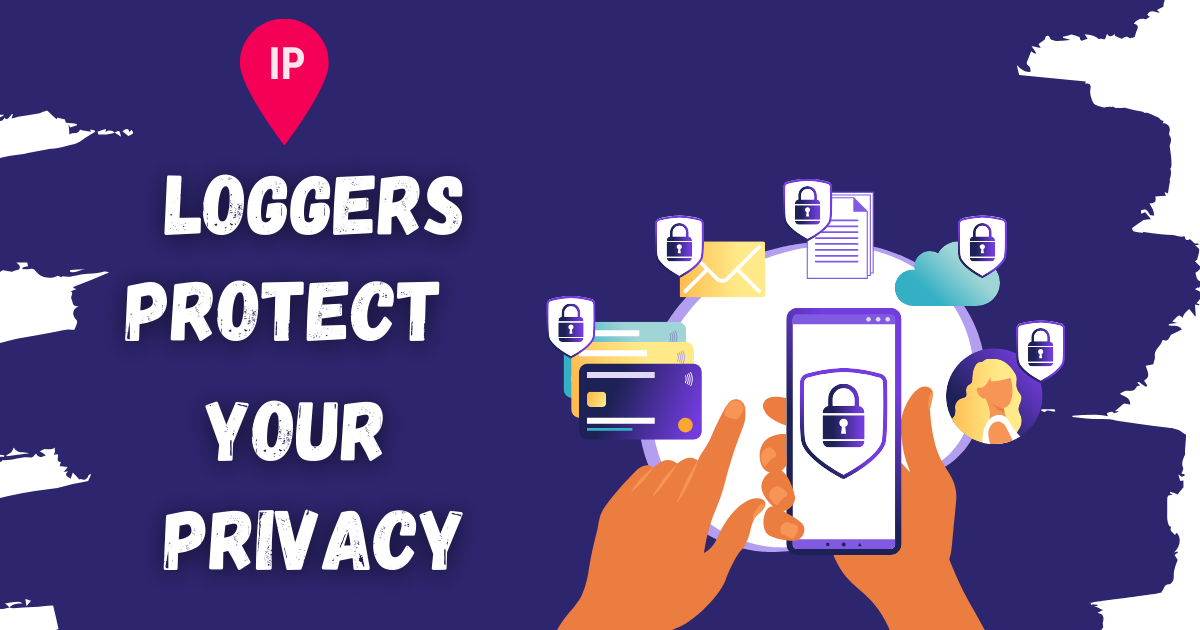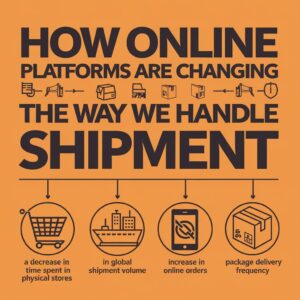In today’s digital age, privacy is a paramount concern for many internet users. IP loggers, which are tools designed to capture the IP addresses of website visitors, can pose significant privacy and security risks. Understanding what IP loggers are, how they can impact your privacy, and what measures can be taken to protect against them is essential for maintaining online safety. This article explores the various aspects of IP logging and provides practical advice on how to safeguard your privacy against these tools.
Key Takeaways
- IP loggers can reveal your location and ISP, but using a VPN can effectively mask your real IP address and protect your privacy.
- Privacy-focused browsers and extensions, along with ad blockers, can help prevent IP logging and enhance online security.
- Data breaches and man-in-the-middle attacks are serious security threats associated with IP loggers that can lead to identity theft.
- Being vigilant with privacy settings, avoiding suspicious websites, and considering alternatives to IP loggers can strengthen your online privacy.
- The ethical use of IP loggers involves transparency, user consent, and adherence to legal standards, empowering users to control their digital footprint.
Understanding IP Loggers and Their Impact on Privacy

What is an IP Logger?
An IP logger is a tool that captures and records the IP addresses of users when they visit a website or click on a link. This digital identifier is akin to a personal address, revealing not only the user’s location but also their internet service provider. IP loggers operate by embedding code into websites or links, which, upon interaction, retrieves the user’s IP and forwards it to the logger’s owner for storage and analysis.
While IP loggers have legitimate uses, such as monitoring traffic or enhancing security, they also pose significant privacy risks. It’s essential to understand these tools to safeguard against potential misuse.
Legitimate applications of IP loggers include website traffic analysis, network troubleshooting, and enhancing online security measures. However, the data they collect can be vulnerable to unauthorized access if not properly secured, leading to privacy breaches and security concerns.
Information Revealed by an IP Address
An IP address is akin to a digital fingerprint, providing a trail that leads back to your internet-connected device. It does not expose your personal details, such as your name or phone number, but it does offer a snapshot of your digital whereabouts. The information disclosed by an IP address includes:
- General geolocation (e.g., city or ZIP code)
- Internet Service Provider (ISP)
- Type of connection (e.g., residential or business)
While an IP address alone may seem innocuous, in the hands of a skilled individual, it can be a starting point for more invasive tracking or targeted cyber attacks.
Understanding the scope of information that can be gleaned from an IP address is crucial for recognizing the potential privacy risks. It’s the first step in a chain that could lead to more detailed profiling when combined with other data.
Privacy Concerns with IP Loggers
IP loggers, while useful for analytics, pose significant privacy concerns for individuals online. The information an IP address reveals can be more extensive than many realize, including general location, internet service provider, and potentially the user’s identity. This data, when aggregated, can lead to targeted attacks and identity theft.
- Information Revealed by an IP Address: Your digital footprint, including browsing history and location.
- Targeted Attacks and Identity Theft: Personal data can be used maliciously if it falls into the wrong hands.
- Lack of Transparency and User Consent: Many users are unaware that their IP information is being logged and used.
The responsible use of IP loggers hinges on transparency and user consent. Websites should disclose their data collection practices and give users the option to opt out.
Ultimately, the use of IP loggers without clear consent and transparency can erode trust and leave users vulnerable to privacy invasions and security risks.
Using Technology to Shield Your IP Address

The Role of VPNs in Protecting Privacy
Virtual Private Networks, or VPNs, are a critical tool in the fight for online privacy. They provide a secure tunnel for internet traffic, ensuring that your activities are shielded from unauthorized observation. By rerouting your connection through a VPN server, your actual IP address is replaced with the server’s IP, effectively masking your digital footprint.
- VPNs encrypt your data, making it difficult for third parties to intercept and read your information.
- They allow access to geo-restricted content by hiding your real location.
- VPNs can protect against various forms of cyber fraud by keeping sensitive information like your medical data private.
While VPNs are powerful, they are not a panacea. It’s important to understand that they do not provide absolute anonymity and cannot prevent all forms of app-based tracking. However, when used correctly, VPNs are an essential component of a robust online privacy strategy.
Utilizing a VPN does not guarantee complete privacy, but it is a significant step towards protecting your personal information online.
Privacy-Focused Browsers and Extensions
In the digital age, safeguarding your online privacy is paramount. Privacy-focused browsers are essential tools for maintaining anonymity and security on the internet. These browsers come equipped with features specifically designed to thwart IP loggers and protect user data. For instance, they may include an in-built ad-blocker, tracker blocker, and browser fingerprinting protection, among other privacy-preserving functionalities.
When selecting a privacy-focused browser, it’s important to consider the browser’s ability to block tracking attempts and its user-friendly features.
Extensions play a crucial role in enhancing browser privacy. They can be easily added to your browser to prevent IP loggers from capturing your information. Here’s a simple guide to implementing a proxy extension for privacy:
- Open your preferred web browser.
- Visit the browser’s extension store.
- Install a reputable proxy browser extension.
- Activate the extension and choose a server location.
Remember, not all browsers are created equal when it comes to privacy. Some may offer better security features and more robust protection against IP loggers. It’s wise to review and compare the privacy features offered by the top secure browsers of the year.
Ad Blockers and Tracking Prevention
Ad blockers and tracking prevention tools are essential components in the arsenal against IP loggers. These tools work by blocking the scripts that websites use to track your online activity, including your IP address. By doing so, they not only enhance your browsing experience by eliminating intrusive ads but also significantly increase your privacy.
While no solution is foolproof, using ad blockers and tracking prevention tools can greatly reduce your digital footprint and the likelihood of your IP address being logged without consent.
For instance, the Ghostery ad blocker is designed to stop trackers from accessing your personal data and tracking your online behavior. This contributes to both your privacy and security while you navigate the web. It’s important to note that while ad blockers can improve privacy, they may not be effective on all websites and can sometimes interfere with website functionality.
To complement ad blockers, consider using privacy-focused browsers that offer additional layers of protection. These browsers often include features like automatic cookie and cache removal, browser fingerprinting protection, and built-in tracker blockers. Here’s a quick rundown of features to look for in a privacy-focused browser:
- In-built ad-blocker
- In-built tracker blocker
- Browser fingerprinting protection
- Open-source code
- Automated cookie and cache removal
- Biometric bookmark security
Navigating the Risks: Security Threats Posed by IP Loggers

Vulnerability to Data Breaches
The data collected by IP loggers is often stored on servers, which, if compromised, can lead to significant security issues. A data breach can expose sensitive information such as IP addresses and associated data, making users vulnerable to identity theft and targeted attacks.
The risk of a data breach is not just a loss of privacy but a gateway to more severe security threats. Users must be aware of the potential dangers and take steps to mitigate them.
Cybercriminals can use exposed IP information to launch phishing scams or other forms of cyberattacks. Here are some ways your data can be misused:
- Infecting your device with malware.
- Stealing and misusing your financial details.
- Forging documents like fake passports.
- Impersonating you in various fraudulent schemes.
- Manipulating you through adware and targeted advertising.
The Danger of Man-in-the-Middle Attacks
Man-in-the-middle (MitM) attacks are a significant security threat where malicious actors intercept the communication between a user and a service. By exploiting IP loggers, attackers can identify potential targets and insert themselves into the data exchange process. This interception can lead to the unauthorized access of sensitive information, such as login credentials or financial details.
To mitigate the risk of MitM attacks, it’s crucial to adopt protective measures. Here are some strategies:
- Use strong and unique passwords for all accounts.
- Implement two-factor authentication to add an extra layer of security.
- Consider passwordless authentication methods, such as biometric verification.
While no system is entirely foolproof, combining these practices can significantly reduce the likelihood of falling victim to a MitM attack. It’s about creating multiple defensive layers to safeguard your digital identity.
Staying Vigilant: Best Practices for Online Privacy

Being Proactive with Privacy Settings
To effectively protect your privacy against IP loggers, it’s crucial to be proactive with your privacy settings. Adjusting the settings on your online accounts determines the extent of personal information you make public. This can significantly reduce the risk of identity theft and exposure to IP loggers.
- Be cautious with links, especially from unknown sources.
- Always review a website’s privacy policy for data collection practices.
- Ensure websites use secure connections before entering sensitive information.
By being vigilant and adjusting your privacy settings, you can create a strong barrier against unwanted tracking and data collection.
In addition to these measures, using strong passwords and enabling two-factor authentication are essential steps in maintaining online privacy. Remember, every action you take to secure your online presence is a step towards safeguarding your personal information from IP loggers and enhancing your overall security.
Recognizing and Avoiding Suspicious Websites
In the digital realm, your first line of defense is often your ability to identify and steer clear of suspicious websites. Always verify the security of a website by checking for ‘HTTPS’ rather than just ‘HTTP’ in the address bar. This indicates that the site has a secure connection, which is crucial for protecting your data.
When assessing a website’s legitimacy, consider the following points:
- Look for a privacy policy that outlines how your data will be used and protected.
- Ensure there is clear contact information available.
- Check for trust seals that verify the site’s security.
Being vigilant online is not just about technology; it’s about developing a mindset geared towards privacy and security.
Remember, a legitimate website will typically have measures in place to protect your privacy and will be transparent about its practices. By being proactive and knowing what to look for, you can significantly reduce the risk of falling prey to IP loggers and other privacy threats.
Alternatives to IP Loggers for Website Analytics
While IP loggers serve as a tool for understanding user behavior and traffic sources, there are privacy-friendly alternatives that can provide similar insights. Anonymized data collection and the use of session IDs allow for the analysis of user interactions without the privacy implications of IP logging. These methods respect user privacy while still offering valuable data for website optimization.
For those seeking to avoid the use of IP loggers, here are some alternatives:
- Google Analytics: Offers a range of features for tracking website performance without explicitly logging IP addresses.
- Matomo: An open-source analytics platform that prioritizes user privacy and offers an option to anonymize IP addresses.
- Clicky: Provides real-time web analytics and has a feature to mask IP addresses.
- Fathom Analytics: A simple, privacy-focused analytics tool that does not use cookies or collect personal data.
It’s essential for businesses to consider the privacy of their users when choosing an analytics solution. Opting for tools that minimize data collection and offer anonymization features can help maintain trust and comply with privacy regulations.
When selecting an analytics service, it’s crucial to analyze websites like iplogger.org for their online performance and privacy features. Transparency in data collection and providing users with the option to opt out are key factors in ethical data practices.
IP Logging: Legalities, Ethics, and User Empowerment

Is it Illegal to Use an IP Logger?
The question of legality surrounding IP loggers is nuanced. No, using an IP logger itself isn’t illegal, but the critical factor is the intent behind its use. Legitimate purposes, such as website analytics or network management, are generally acceptable. However, using IP loggers for nefarious activities, such as cyberstalking or unauthorized data collection, crosses the line into illegality.
- Legitimate uses: Website analytics, network troubleshooting, and enhancing user experience.
- Illegal uses: Cyberstalking, unauthorized data collection, and identity theft.
The legality hinges on how the collected data is used. Using IP addresses for malicious purposes is illegal.
It’s important to understand that while IP loggers can be a tool for insight, they can also be a weapon for invasion. Users should be vigilant and informed about the potential for misuse. If you suspect unethical logging, consider using privacy tools and reviewing the website’s privacy policy for disclosures.
Transparency, Consent, and User Rights
The responsible deployment of IP loggers is contingent upon upholding transparency and securing user consent. Websites that utilize IP loggers should not only disclose their data collection practices but also provide users with clear options to opt out. This approach respects user autonomy and aligns with legal requirements regarding data privacy.
- Lack of Transparency: Many websites implement IP loggers without obtaining explicit consent, undermining trust and leaving users in the dark about the use of their data.
- Security Risks: IP loggers can pose security threats, including increased vulnerability to data breaches.
It is crucial for users to thoroughly read and understand privacy policies before agreeing to them. These documents are legally binding and detail how personal data is managed.
By being vigilant and demanding clarity on data collection methods, users can better protect their privacy and exercise their rights effectively.
Final Thoughts on Ethical IP Logging Practices
In the unmask world of IP loggers, it’s essential to strike a balance between the utility they provide and the privacy rights of users. Ethical IP logging is characterized by transparency, user consent, and respect for personal data.
Websites that employ IP loggers should be upfront about their data collection practices, offering clear options for users to opt out. This fosters trust and empowers users to make informed decisions about their online presence.
While IP loggers can serve legitimate purposes, such as security and website analytics, alternatives exist that prioritize user privacy. Employing anonymized data collection or session IDs can yield insights without exposing personal information. It is incumbent upon businesses to consider these alternatives to uphold ethical standards.
Ultimately, the responsibility lies with both users and website operators. Users should remain vigilant and proactive in managing their privacy settings, while operators must ensure their practices align with legal and ethical expectations.
Conclusion
In the age of digital surveillance, protecting your privacy against IP loggers is not just a matter of personal preference but a necessary step towards safeguarding your online identity. Throughout this article, we’ve explored various strategies, from using VPNs and privacy-focused browsers to being vigilant about the websites you visit. Remember, while IP loggers can serve legitimate purposes, it’s crucial to balance their use with transparent practices and respect for user consent. By staying informed and employing the protective measures discussed, you can navigate the internet with greater security and peace of mind. Always be proactive about your digital privacy—it’s a valuable asset in our interconnected world.
Frequently Asked Questions
What is an IP Logger?
An IP logger is a tool or service that captures the IP addresses of users visiting a website or clicking on a link, which can reveal their general location and internet service provider.
Can using a VPN protect me from IP loggers?
Yes, a VPN can protect your privacy by encrypting your internet traffic and routing it through a remote server, effectively masking your actual IP address from loggers.
Are privacy-focused browsers effective against IP loggers?
Privacy-focused browsers and extensions can significantly enhance your protection by offering built-in features to block IP loggers and tracking attempts.
Is it illegal to use an IP logger?
The legality of IP loggers depends on jurisdiction and how they are used. Transparency and user consent are crucial for ethical use.
How can I tell if a website is using an IP logger?
While it’s challenging to detect all IP loggers, some browser extensions can identify known logging scripts, and a website’s privacy policy may disclose its data collection practices.
Are there benefits to IP logging for users?
IP logging can provide benefits such as improved website functionality and security measures, but it should always be balanced with user privacy and informed consent.




